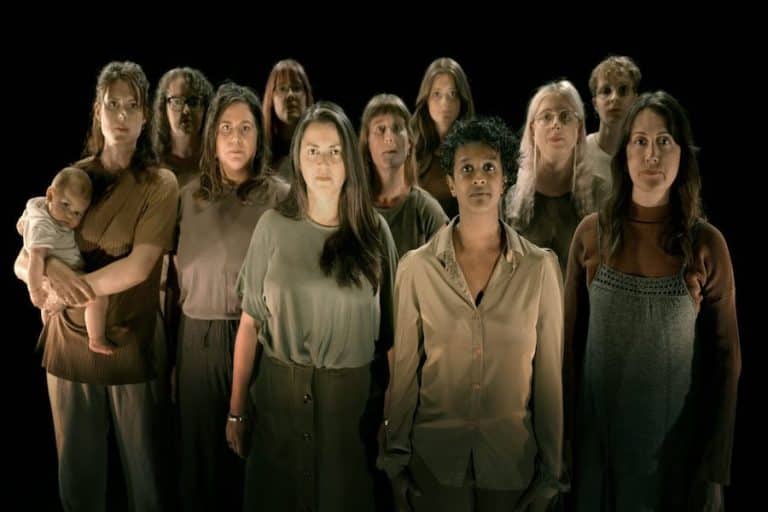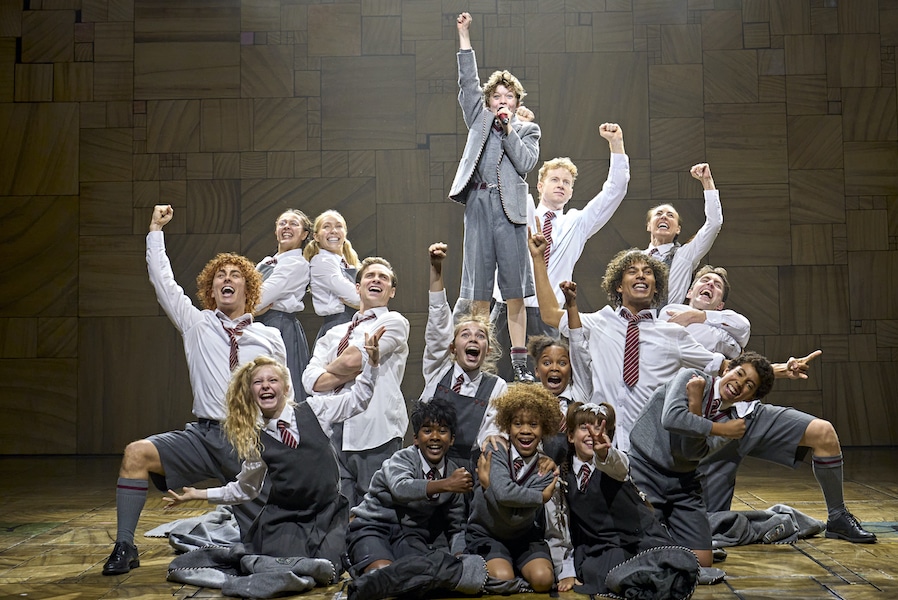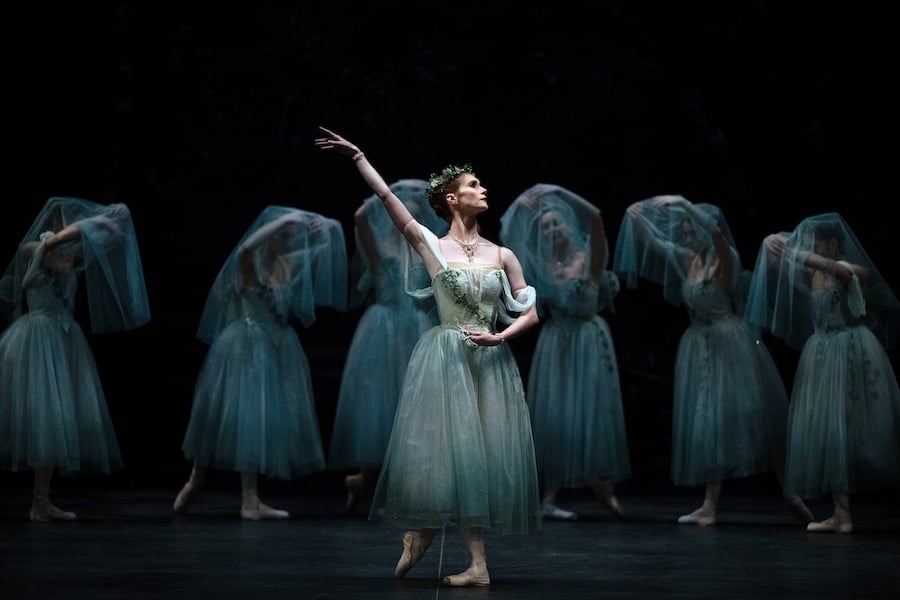Review: The Merchant of Venice at HOME is “beautiful and more relevant than ever”
- Written by Glenn Meads
- Last updated 2 years ago
- Theatre

The first few rows have been replaced by a gangway so that the actors can leave the venue at key moments and enter from the back. This gives the piece the feel of a thriller and works a treat. Groups of seats on either side of the stage feature audience members and during the famous courtroom scene, this works wonderfully well.
But is this change for the sake of change, or does it add anything? By moving the action to 1930’s Britain against the backdrop of the rise of the Fascist Party, watched over by the imposing figure of Oswald Mosley revisits some uncomfortable home truths.
We see films about how the UK stood alone against Hitler but this often-forgotten part of our history has parallels with where we are today. Immigrants are used as a punching bag and a distraction from what is happening to the economy and many votes think they are to blame for our current situation.
In this gripping and subversive rendering of Shakespeare’s classic tale, Shylock is a widowed East End pawnbroker, she is a refugee and this concept came from actor Tracy-Ann Oberman. It is inspired because the play is then able to tackle antisemitism and prejudice and it means that lines such as: “If you prick us, do we not bleed?” feel as if they are written today and ripped out from a newspaper.
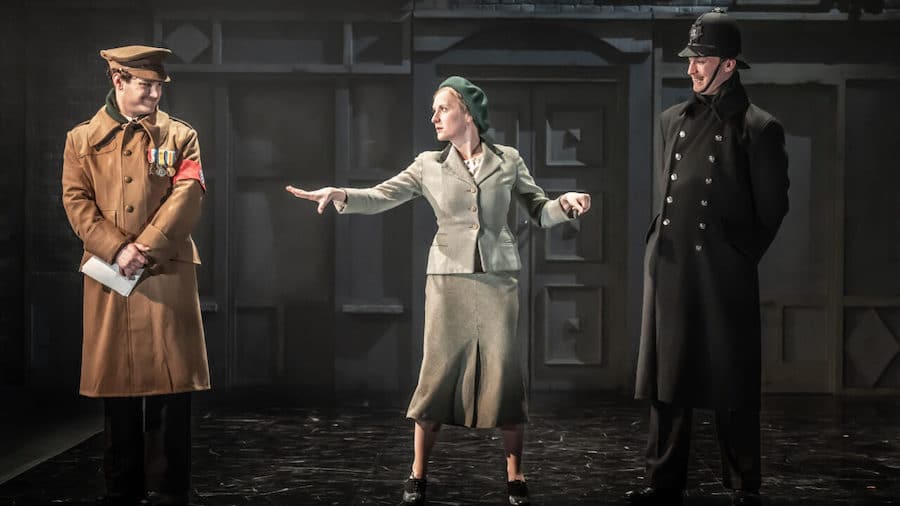
Brigid Lamour’s production has a sense of urgency, it is only two hours long including an interval and it moves at pace. You feel as if you are shown something which has been denied, buried and now unearthed at the perfect time.
Hate crimes sadly still exist and the Jewish community fought back in the Battle of Cable Street in 1936 and that makes this the ideal setting for this production which packs a punch.
It also means that as you sit and watch, you do have a sense of hope that when you stand up as a collective and turn off your phone and get out and march, you are ‘seen’ and you stand together.
The collaborative approach of Tracy-Ann Oberman and Brigid Lamour means that iconic lines sting, certain phrases sing and you left thinking why hasn’t anyone depicted Shylock as a woman before.
She has a power and majesty which is stripped away before your very eyes by prejudice and hatred.
As Tracy Ann-Oberman leaves the stage, as Shylock is spat at, and stands silent, the audience mirrors the shock and fear that imbues the money lender.
The cast delivers Shakespeare’s text with such confidence and fresh understanding, that you almost forget you are watching a piece by the Bard. This new lens fits the play like a glove. Hannah Morrish plays privileged Portia with an air of condescension and the audience smiles and laughs in all the right places, due to her superb delivery.
Raymond Coulthard plays two fascist characters and revels in the power and stature of these two figures and makes interesting parallels between them.
Jessica Dennis plays the wily companion of Portia – Nerissa with a sense of playfulness but she also crackles with internal dissatisfaction. Again, she connects her other character Mary – who works for Shylock.
Often you see Shakespeare’s texts spoken beautifully but the lines only make you smile because you know them. In Dennis’s capable hands, they are spoken with relish and a devilish glint in the eye.
Liz Cooke’s costumes and set are used to create a sense of what is to come. Similar to Spielberg’s iconic girl in a red dress in the otherwise monochrome Schindler’s List, colour is used to reflect hatred. The colourful union jack draped over the shoulders becomes a symbol of hatred, as adopted by the far right.
Sarah Weltman’s sound design builds tension and signals the changing tide which hits the East End Jewish Community like a tsunami and Greta Zabulyte’s superb video design envelopes the characters as Mosley’s followers multiply like Chicken Pox. Rory Beaton’s lighting likewise brings us this sense of change and acts like another character, waiting in the wings to strike. Erran Baron Cohen’s music gives the play the epic feel of a film.
Tracy-Ann Oberman brings us a Shylock who is stoic and defiant, yet almost broken by hatred. This is a multi-layered performance and she illustrates how prejudice can make you question humanity and yourself. Her broken body language is heartbreakingly raw.
The Merchant of Venice 1936 is at HOME until 25th March and can be booked here.
- This article was last updated 2 years ago.
- It was first published on 17 March 2023 and is subject to be updated from time to time. Please refresh or return to see the latest version.
Did we miss something? Let us know: [email protected]
Want to be the first to receive all the latest news stories, what’s on and events from the heart of Manchester? Sign up here.
Manchester is a successful city, but many people suffer. I Love Manchester helps raise awareness and funds to help improve the lives and prospects of people across Greater Manchester – and we can’t do it without your help. So please support us with what you can so we can continue to spread the love. Thank you in advance!
An email you’ll love. Subscribe to our newsletter to get the latest news stories delivered direct to your inbox.
Got a story worth sharing?
What’s the story? We are all ears when it comes to positive news and inspiring stories. You can send story ideas to [email protected]
While we can’t guarantee to publish everything, we will always consider any enquiry or idea that promotes:
- Independent new openings
- Human interest
- Not-for-profit organisations
- Community Interest Companies (CiCs) and projects
- Charities and charitable initiatives
- Affordability and offers saving people over 20%
For anything else, don’t hesitate to get in touch with us about advertorials (from £350+VAT) and advertising opportunities: [email protected]
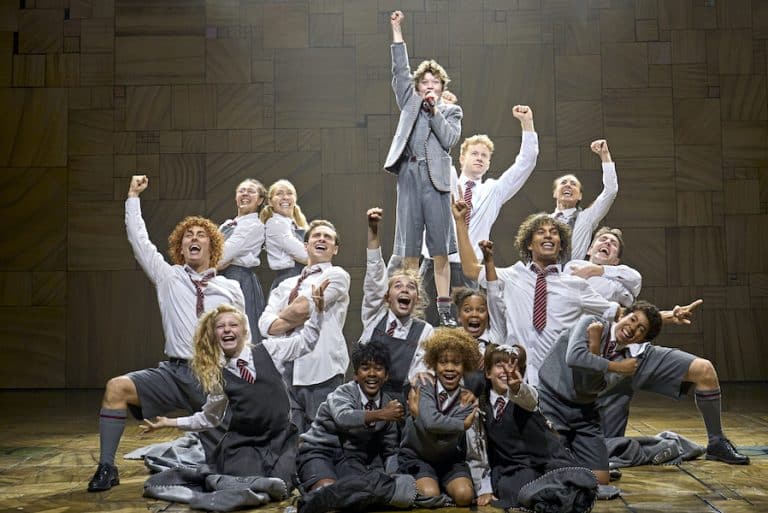
Do you know someone who could be the next star of Matilda The Musical?




Inside the Manchester locations of Netflix’s new thriller Missing You
